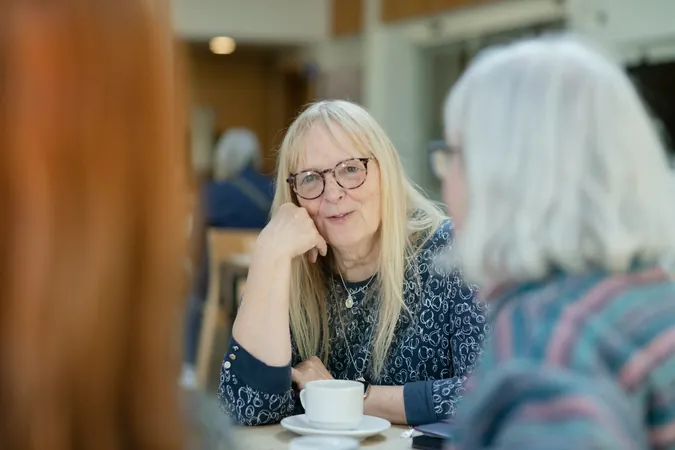
Shocking New Study Reveals Frailty Could Predict Mortality in Older Breast Cancer Patients!
2025-04-07
Author: Rajesh
A Groundbreaking New Study
This groundbreaking new study has linked frailty—a measure of reduced physiological capacity—to five-year survival rates in elderly women battling breast cancer. This essential research highlights how effectively managing frailty during chemotherapy could potentially lead to improved survival outcomes.
Study Overview
Published in JAMA Network Open under the title "Frailty Trajectories Following Adjuvant Chemotherapy and Mortality in Older Women With Breast Cancer," the study examined a massive cohort of 20,292 women aged 65 and older, all diagnosed with stage I to stage III breast cancer. Alarmingly, it was found that 4.5% of these women exhibited nonresilient frailty trajectories, indicating a decline in physiological reserve right after beginning chemotherapy.
Survival Outcomes
These nonresilient women faced drastically worse survival outcomes compared to their counterparts with stable or improving frailty trajectories. Despite representing a smaller percentage of the total cohort, this group’s mortality rates were significantly higher, raising urgent questions about how frailty influences treatment effectiveness.
Comparative Results
In contrast, women who either maintained their strength or bounced back from short-term declines showed much better survival rates. Nonetheless, while tracking the changes in frailty offered insights into survival trends across various patient groups, it proved less effective in predicting individual mortality risk.
Need for Further Research
Moreover, the researchers underscored the necessity for additional investigations into whether fluctuations in frailty can forecast other critical health incidents, such as falls or hospitalizations. Patients already at greater risk—particularly those with underlying health conditions—might greatly benefit from specialized interventions, including enhanced nutritional support, exercise regimens, and more comprehensive management of the side effects stemming from cancer treatments.
Conclusion
This pivotal study emphasizes the importance of monitoring frailty throughout the cancer treatment journey, as it holds the potential to improve both care and outcomes for older patients facing breast cancer. As healthcare continues to evolve, this research prompts a call to action for oncologists and caregivers to prioritize frailty assessments in their treatment plans for elderly individuals. Don't miss this important update—your survival may depend on it!



 Brasil (PT)
Brasil (PT)
 Canada (EN)
Canada (EN)
 Chile (ES)
Chile (ES)
 Česko (CS)
Česko (CS)
 대한민국 (KO)
대한민국 (KO)
 España (ES)
España (ES)
 France (FR)
France (FR)
 Hong Kong (EN)
Hong Kong (EN)
 Italia (IT)
Italia (IT)
 日本 (JA)
日本 (JA)
 Magyarország (HU)
Magyarország (HU)
 Norge (NO)
Norge (NO)
 Polska (PL)
Polska (PL)
 Schweiz (DE)
Schweiz (DE)
 Singapore (EN)
Singapore (EN)
 Sverige (SV)
Sverige (SV)
 Suomi (FI)
Suomi (FI)
 Türkiye (TR)
Türkiye (TR)
 الإمارات العربية المتحدة (AR)
الإمارات العربية المتحدة (AR)